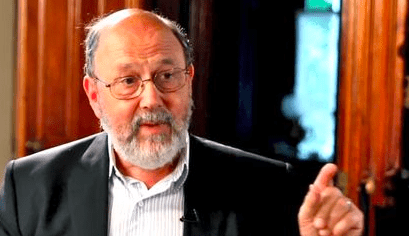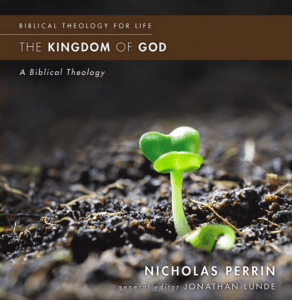 When it comes to the meaning of biblical terms — like gospel, kingdom, heaven — not a few of us can get irritated and clearly a recent example of yet one more attempt to correct the church and to get the church back on track is N.T. Wright’s chapter “Distorted and Competing Gospels” in his new book, Simply Good News.
When it comes to the meaning of biblical terms — like gospel, kingdom, heaven — not a few of us can get irritated and clearly a recent example of yet one more attempt to correct the church and to get the church back on track is N.T. Wright’s chapter “Distorted and Competing Gospels” in his new book, Simply Good News.
He’s definitely pointing his finger at shallow gospels and the world’s pressures when it comes to comprehending how good the news is. There’s a holy impatience in Wright in this (quite long) chapter. Hence, notice the following:
Those who adhere to the early Christian (I call it “apostolic”) gospel may find themselves in good company:
The stories about Jesus constantly portray him as saying things that even his family and friends didn’t understand…. In other words, when Jesus himself was telling the good news as he saw it, there were plenty of people who found it so different from what they expected that they just couldn’t see it. [In fact, Wright observes…] The good news is always different from what people think it will be (60).
Wright explores this in what some might call the noetic effects of the Fall when he speaks of our “mental framework” (61) making it hard for us to grasp the goodness of the news. And Jesus chose the term kingdom to speak this good news:
The reason Jesus went on talking about kingdom, despite the obvious risks of misunderstanding in his own day, was because he wanted to replace the ordinary sort of kingdom with i quite different sort (63).
Back to one of his old themes:
He was insisting that this kingdom of God, this new reality, the heart of his good news, was a different sort of rule based on a different sort of power. And that it was designed to challenge the present powers of the world with a new kingship that would trump theirs altogether (63).
Where I see his holy impatience is in his castigation of the soterian gospel or soterian reductions of the gospel and it what it means for our understanding of God:
When I say the popular view, I mean the view of most people inside the church as well as outside. Most people in the Western world think of Christianity as a system: a religious system, a system of salvation, or a system of morality. Most people do not think of it as news—a message about something that happened, as a result of which everything is now different (64-65).
At the center of his holy impatience is the death of Jesus which he thinks has been placed into an inadequate (or wrong) narrative:
Most people who regard the statement that Jesus died in your place as the center of the gospel place this truth, this beautiful fragment, into a larger story that goes like this. There is a God, and this God is angry with humans because of their sin. This God has the right, the duty, and the desire to punish us all. If we did but know it, we are all heading for an eternal torment in hell. But this angry God has decided to vent his fury on someone else instead—someone who happens to be completely innocent. Indeed, it is his very own son! His wrath is therefore quenched, and we no longer face that terrible destiny. All we have to do is to believe this story and we will be safe (68-69).
Instead of a story about creation and covenant and God as the God of infinite love, this story reframes the death of Jesus into a different narrative. And Wright speculates that at times some people’s relationship to their fathers — angry ones to be sure — are behind this view of God and this view of the death of Jesus and this view of the gospel. Romans makes clear that “God’s implacable rejection of evil is the natural outflowing of his creative love” (70).
So where does this death of Jesus fit?
His death is a vital and central part of how that is done. We cannot bypass it. We cannot downplay it. We cannot underemphasize it. But it makes the sense it makes within this picture: of the love of God, the covenant of God, the plan of God for the fulfillment of the whole of creation, not its abolition, and above all, the coronation of Jesus as the world’s rightful king and lord. Many times, when people preach the gospel and talk of Jesus dying in our place, you would never guess at any of these things (73-74).
This competing gospel is then combined with larger Western themes: rationalism and romanticism [a section where he needs to consider that the early colonies and nation did not think in simple terms about going to heaven when they die but also — very trenchantly at times — of a kingdom that makes its impact in the here and now. The theme of a “city on a hill” is an embodied, this-worldly view of a new Jerusalem and a Christian nation.]
Wright’s holy impatience then extends to the Enlightenment’s obsession with empiricism and scientism and the story of progress this belief has created. Thus, “We are liberated; we are progressive” (84). But the gospel centers the revolution, not with the Enlightenment or the Magna Carta but with the resurrection. Thus, “Since that is the center of the early Christian good news, anyone who holds the modern Western view will inevitably misunderstand it” (86).















